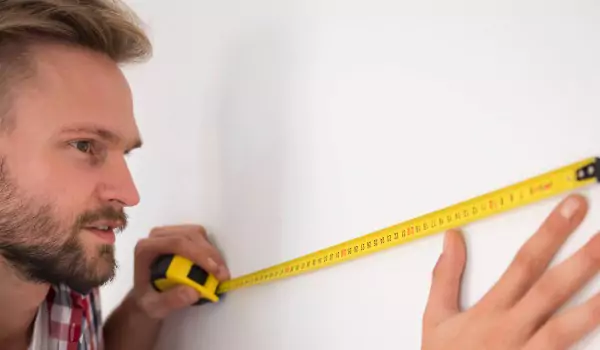


Moving house is a complicated and challenging process. There are numerous things involved in the lengthy process, such as sorting and decluttering items, packing, labelling, and renting a truck. Amidst all the chaos, one element that often gets overlooked is the measurement of linear feet. Learning how to calculate it is critical for precisely estimating the space your possessions will take in the new house.
During the preparation for the move, linear feet consideration might not come to mind straightaway. However, its role should not be underestimated. It will make it easier to select the correct-sized moving vehicle and avoid paying more than necessary for the relocation. A clear understanding of linear feet plays a crucial role in ensuring a smooth and efficient move instead of a chaotic one. Here is how to calculate linear feet. Use this guide to have a better moving experience.
Hide
Show
]Also known as lineal foot, a linear foot is a length measurement equal to one foot. Linear means movement or a shape in a straight line. So, a linear foot measurement is basically a straight-line measurement. Thickness, height, and width measurements are all examples of linear foot measurements. They play a major role in multiple fields, including interior design and construction, and house moving with the assistance of budget removalists Gold Coast. This is because it is a simple way to quantify space.

When relocating, particularly long-distance or taking assistance of the best removalists Gold Coast, the space your household possessions will take in the moving vehicle will be measured in linear feet. There are numerous reasons why calculating linear feet is crucial. Here are a few of them:
Precise linear feet measurement helps estimate moving expenses. Moving companies charge according to the space a homeowner’s belongings will occupy in the vehicle. This helps individuals to budget precisely and plan their expenses.
Precise measurements make it easier to pick a vehicle that fits household possessions without wasting space or requiring multiple trips. It helps figure out how much space is actually required, allowing professionals to ensure efficient use of available space.
Understanding linear footage of belongings allows cheap removalists Gold Coast to plan the loading procedure effectively. They can tactically place and arrange the items in the vehicle, guaranteeing safe and secure transportation of expensive items and valuables.
After knowing the importance, it is crucial that individuals take the right steps to properly calculate linear feet.
The first step is to determine the number of items they are planning to move and list them. It is better to group similar possessions together, including furniture, appliances, etc. This will help organise the measurements and ensure that no specific item is neglected.
Grab a measuring tape and use it to measure each item’s length in feet. When it comes to packing boxes, it is best to measure the longest side. You must measure items like appliances and furniture from one end to the other for correct quantification. Note down the measurements in a notebook. For instance:
After measuring the items, it is time to add them together, which will result in the total linear feet of the possessions. The sum will display the total length your belongings will take after that lined up end-to-end. For instance:
Moving vehicles are available in plenty of different sizes. Remember that they have different linear feet capacities. By being aware of the total linear feet of their possessions, individuals will have an easier time picking the right size vehicle. For instance, a 10-foot truck will likely have a linear feet capacity of about 9 feet. On the other hand, a 26-foot vehicle might have a linear feet capacity of 24 feet. It is always recommended to hire professional removalists Gold Coast to make the procedure easier.
Even though it is vital to calculate accurate linear feet, neglecting buffer space is not recommended. This additional space is a necessity for stuff that is irregularly shaped and gaps between stuff that might occur during the packing procedure. Generally, an additional 10% to 15% of the total linear feet measurement is considered ideal. For instance:

Calculating linear feet is a vital step in the house-moving procedure. It helps plan an efficient and budget-friendly relocation, eliminating the chances of spending more money than necessary. Use the tips from this article to calculate linear feet accurately.


